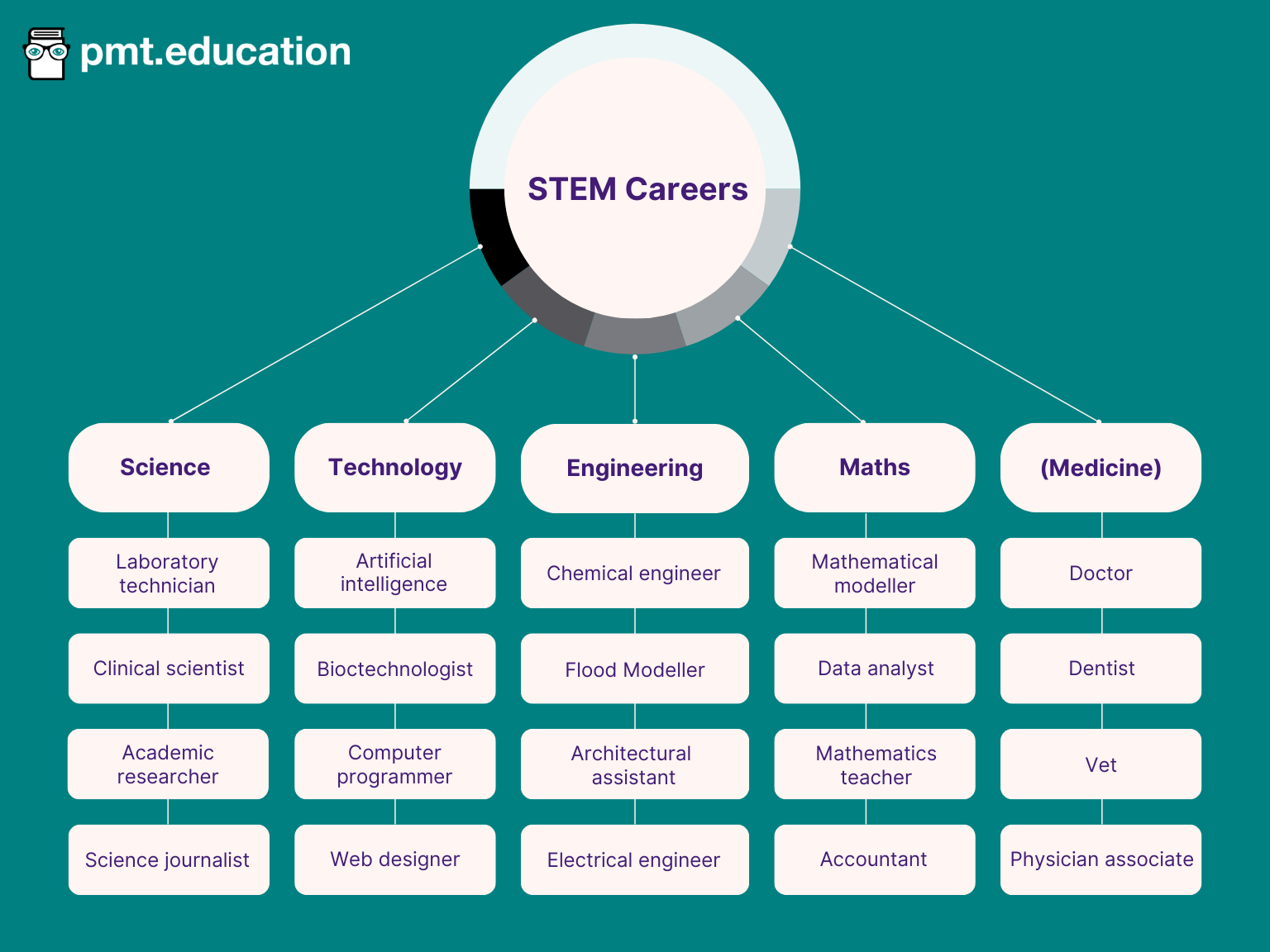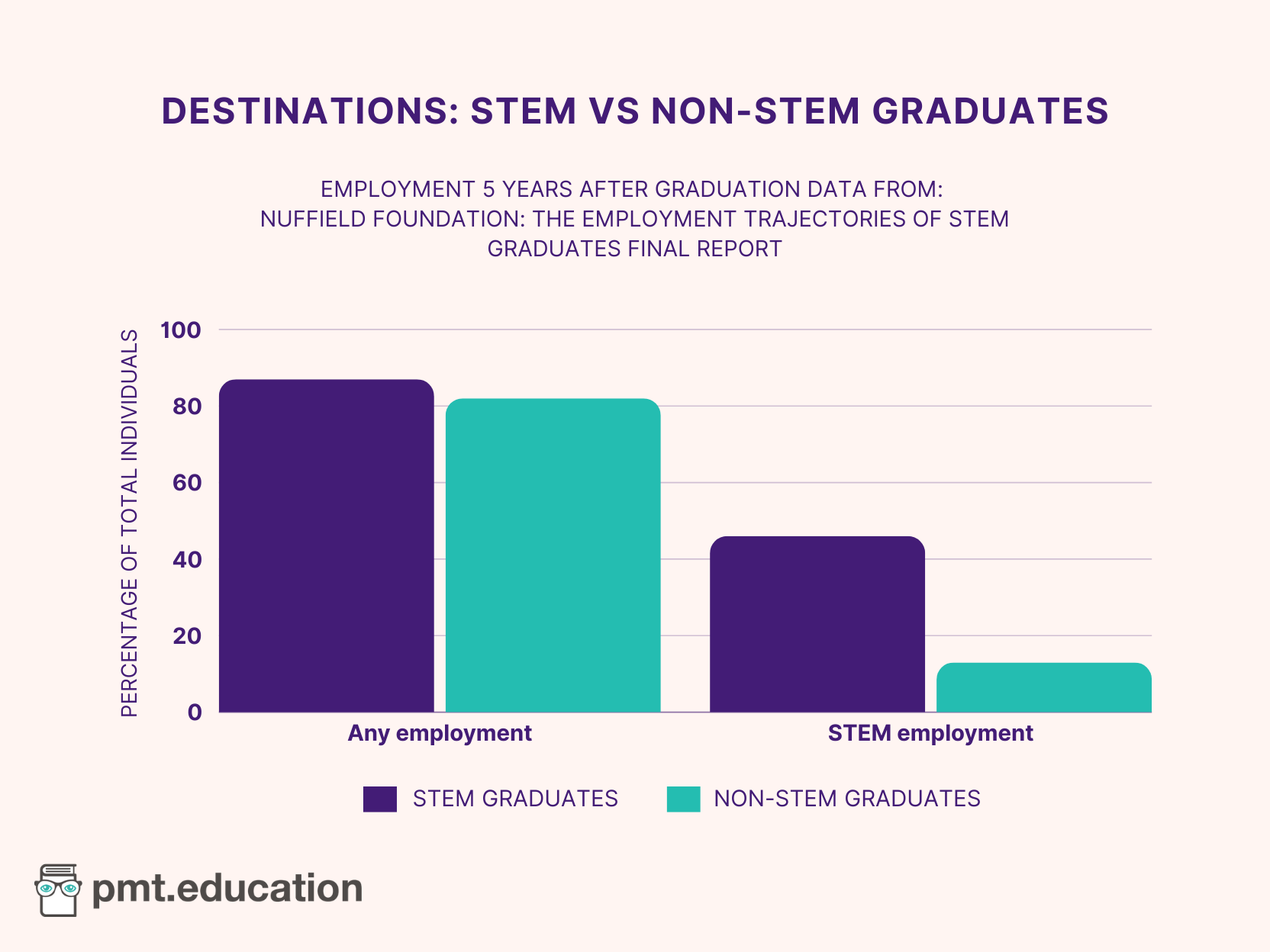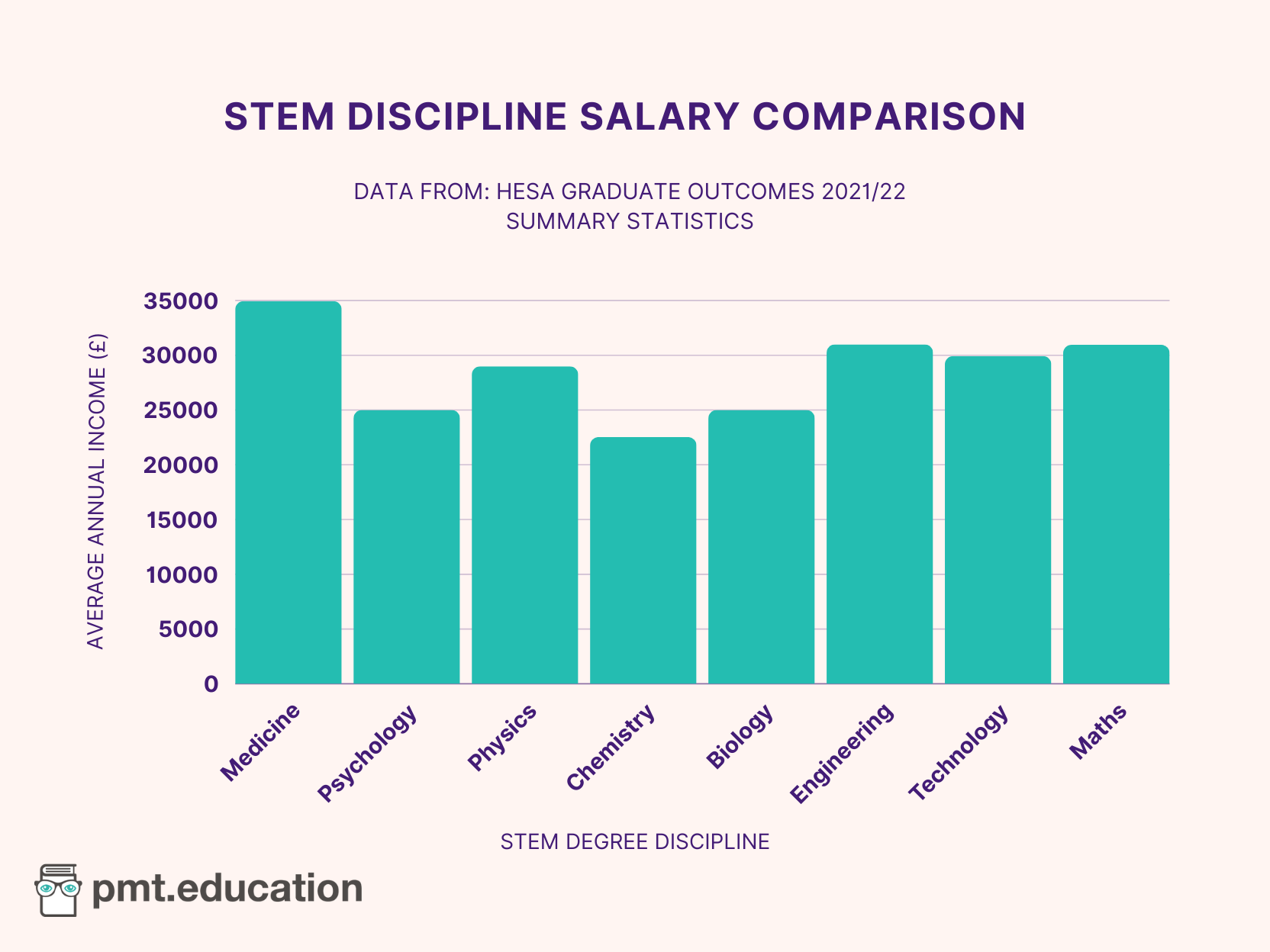What is a STEM career?
STEM careers encompass jobs in science, technology, engineering, maths, and medicine. A STEM career is any role in which you apply knowledge from one or more STEM disciplines. These rewarding positions demand innovation and underpin societal progression.
Beyond making significant contributions to the world we live in, there are lots of reasons to consider a career in STEM. Read on to discover the top 7 reasons people pursue a STEM career, and perhaps you’ll find inspiration for your own career journey!
Why pursue a STEM career?
1. Diverse STEM career opportunities
STEM careers are vast and varied.
Vast – STEM careers account for one of the most expansive ranges of job roles and opportunities. New roles emerge as technology advances and research evolves. For example, with Artificial Intelligence (AI) being developed, new roles have emerged in many STEM disciplines to incorporate AI, with STEM graduate jobs now expected to grow at double the rate of other occupations.
Varied – STEM career opportunities are diverse, ranging from space exploration to the development of life-saving medical treatments. This variety ensures that you have the flexibility to explore numerous paths with a background in STEM, so that you can find a role that aligns with your passions and skills.
The STEM jobs list below displays the variety of STEM career opportunities, categorised into science, technology, engineering, maths, and medicine jobs.

2. High demand and job security
STEM careers are in high demand, with industries facing a shortage of skilled professionals. In the UK alone, there is a shortfall of over 173,000 skilled STEM workers. This high demand means you should be able to find employment relatively easily after graduating, with employers even branching out to non-STEM graduates, of whom 12% will enter STEM roles.
This shows that while a STEM degree can give you a ‘faster start’ in securing a graduate-level job in the field, you don’t necessarily need to be a STEM student to consider a career in this area. If you’re a non-STEM student, a conversion course might be helpful to bridge the gap as you transition into a STEM career.
This high STEM demand also results in significant job security. Once you have your foot in the door with your first STEM job, the high demand for employees will likely mean that companies hope to keep you long-term. As a result, STEM careers often allow for movement between roles within the industry and opportunities for career progression.

3. STEM careers at the forefront of innovation and discovery
Working in a STEM job means being at the forefront of exciting developments and discoveries in a rapidly changing environment. You will be contributing to cutting-edge research, developing new technologies, or solving complex problems. This likely means your STEM career will not look the same throughout your lifetime, as you will adapt to keep up with new knowledge and understanding.
If you are excited about making a personal contribution to the world’s STEM knowledge, you can hear more about life on the cutting edge of research from those who have been there themselves.
4. STEM careers contribute to society
By placing you at the forefront of discovery, STEM careers offer the opportunity to change and better our world. Whether you are responsible for making discoveries , consulting on climate change, or educating the next generation, your work can directly lead to significant societal improvements. This bodes well as the latest career satisfaction studies show that focusing on what you can offer the world could be the most fulfilling approach to take to your career.
However you contribute to research in your STEM career, you will have the satisfaction of knowing that you have left a positive mark on the planet.

5. Competitive salaries
One of the key attractions of a STEM career is the potential for a higher-than-average salary. Research indicates that STEM graduates can earn nearly 20% more than their non-STEM peers. In the UK, the average salary for STEM graduate jobs is £30,973, compared to a £26,023 average salary for university graduates as a whole. These higher wages provide financial security to reward your specialist knowledge and the intensive education pathway that lead you to a STEM careers. Note that the average salary varies between jobs in science, technology, engineering, maths, and medicine, as shown below.

6. Personal growth in a STEM career
A career in STEM is not just about professional development; it also fosters personal growth. STEM careers require continuous learning and enhance your cognitive skills. Additionally, working in STEM often involves collaboration with diverse teams, helping you develop strong communication and teamwork skills. Collecting skills through these experiences contribute to making you a well-rounded individual. You can see more of the skills a STEM career encourages in the image below, or by visiting our STEM skills article.
You can also read about how those in STEM graduate jobs feel a STEM career has made them a better person.

7. Bring a diverse perspective to your STEM career
Diversity is crucial in STEM careers because it introduces different perspectives, which can lead to innovation. Whether you are from an underrepresented group, have a non-STEM background, or are the first in your family to consider a STEM career, your unique experiences are invaluable. By bringing your perspectives to STEM, you can help drive the development of inclusive solutions that benefit everyone and reflect the needs and challenges of a global society.
Consider the personal perspective you bring and take a look at the following resources, created to support different audiences in finding a STEM career.
- Article on conversion courses to transition into STEM after a non-STEM bachelor’s degree
- Article on entry-level STEM jobs that do not require a STEM degree
- BBSTEM organisation that inspires and supports the Black British generation to pursue STEM careers
- The Stemette Society for young women and non-binary people interested in STEM
- In2careers programme equips young people from disadvantaged backgrounds with the tools, expertise, and networks they need to thrive in a STEM career
- The Enable Science Network supports disabled individuals to succeed in STEM careers
Is a STEM career worth it?
Evidently, a STEM career offers numerous benefits, from diverse job opportunities and high demand to competitive salaries and transferable skills. Whether you are committed to a long-term career in STEM or just exploring it as an option, pursuing a STEM job is definitely worth considering.

Comments